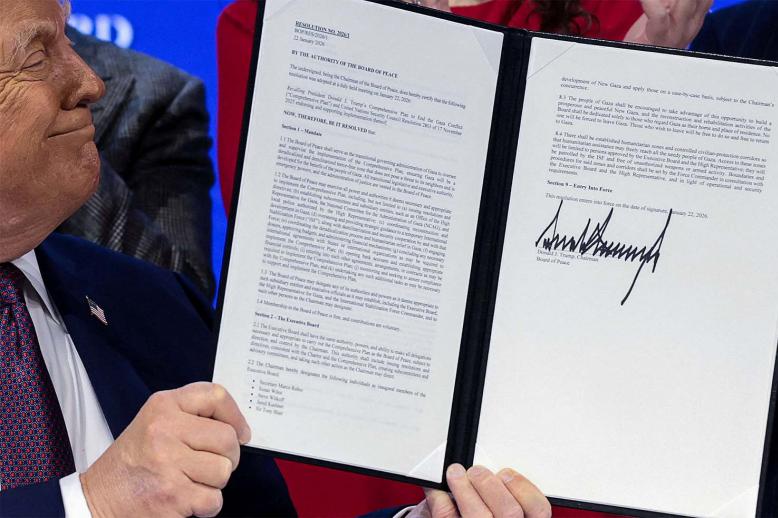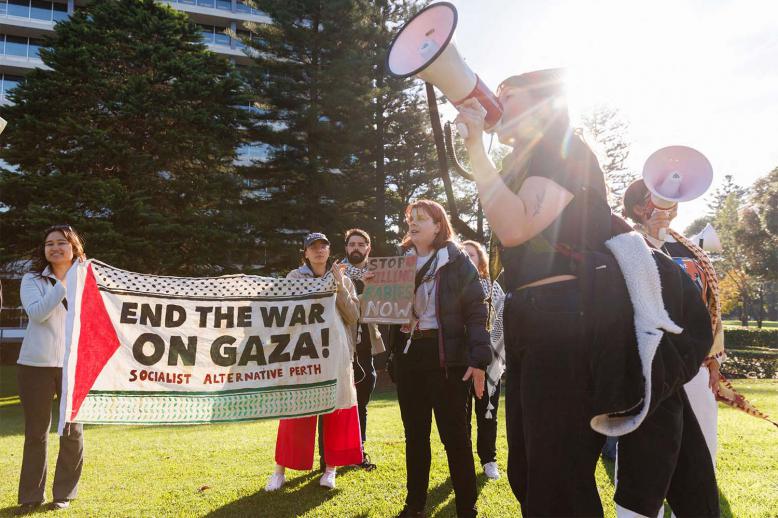The battle for Iraq is a battle for the whole region
The battle for Iraq is nothing less than a battle for the future of the whole region. Is Iraq going to remain a place where the sectarian militias sponsored by the Islamic Republic of Iran roam free?
Iran has been seeking to lay its claws on Iraq for good. It almost succeeded when it imposed Adel Abdel-Mahdi as prime minister after the May 2018 elections, even though he had very little public support.
Iran invented a base for Abdel-Mahdi to prevent Haider al-Abadi from winning another term as prime minister. Abadi, despite being a member of the Islamic Dawa Party, a party known for its fanaticism and retrograde thinking, had tried to gain a margin of independence from Iran during his years as prime minister.
Abadi realised quite late that shaking off Iran’s grip on Iraq was not possible and that the coalition, which was supposed to bring him back as prime minister, would not withstand Iranian pressure exerted through various means, personalities and sectarian militias.
Among those figures, we find Muqtada al-Sadr, who, not long ago, was clamouring for the independence of Iraqi decision but, once the elections were over, al-Sadr went back to playing the role that was assigned to him by Tehran. He made sure to publicly declare his loyalty to Iranian Supreme Leader Ali Khamenei.
Tehran is surprised by the scale of the anti-Iranian movement in Iraq, headed by Iraqi Shias before anyone else. To understand how this development is the result of the accumulation of mistakes that enabled Iran to boast that it was the undisputed master of the political game in Iraq, there is a need to revisit certain events.
Before the 2018 general elections, Iraq was not as close to Iran’s jaws as it is now. The results of those elections, however, revealed the extent of Iran’s influence in Iraq and the absence of a clear US policy for Iraq.
It wasn’t just Iraq that that was concerned but the whole region as well. US President Donald Trump was only interested in avoiding a military confrontation with Iran. Nothing better illustrates this position than the United States’ tepid response to downing by an Iranian missile of a US spy drone over the Strait of Hormuz last June.
Trump fears that any military confrontation with Iran will destroy his hope of returning to the White House. He is a president who has nothing on his mind but the elections of November 2020. Iraq and the Iraqis, Syria and the Syrians, Lebanon and the Lebanese can all go to hell!
The Iraqis have decided to take matters into their own hands and so did the Lebanese, who discovered in October that they were living under the rule of Hezbollah. Young Lebanese invaded the streets and demanded major changes, starting with the change of the government led by Saad Hariri. The government resigned, even though Hezbollah wanted to keep it in place for cover.
The significance of what is happening in Iraq is that it is directed against Iran, directly and publicly, directed against Tehran’s expansionist project, which had seen a new impetus after the US occupation of Iraq in 2003 and the return of Iraqi sectarian militia leaders to Baghdad on the back of an American tank. Most of those militia leaders are commanders of the Popular Mobilisation Forces, which are Iran’s tool to control Iraq, like Hezbollah in Lebanon.
Given these facts, it’s natural Iran will suppress the popular movement in Iraq, the same Iraq that’s never been an easy prey as after the 2018 elections and the appointment of Abdel-Mahdi as prime minister.
Abdel-Mahdi outperformed Nuri al-Maliki in obedience to Iran. Maliki was a mere Iranian tool and was only interested in remaining prime minister. It took the events of Mosul of June 2014 and the scandal of handing it to the Islamic State to remove Maliki from power.
From Iraq, Iran began its expansion in all directions. It strengthened its presence in Syria and Lebanon, especially following the assassination of Rafik Hariri on February 14, 2005. Iran will do all it can to stay in Iraq or to keep Iraq as an Iranian colony.
This explains the efforts of Qassem Soleimani, commander of al-Quds Force, to eliminate Iraqi resistance to the Iranian presence. It explains his support for Abdel-Mahdi and Iran’s opposition to establishing an Iraqi national army with weight and officers who are loyal only to Iraq.
The battle for Iraq is going to be long and its outcome will determine Iran's position on the map of the region. An Iranian dream would have come true if the Iraqis had not risen.
Ayatollah Ruhollah Khomeini, who knew how to lead the Iranian popular revolution against the shah's regime in his favour, had hoped that Iraq would fall quickly but Khomeini's hopes were thwarted after eight years of war with Iraq that ended in a near-Iraqi victory.
Khomeini had benefited from that war by sending the Iranian Army to the front and keeping it out of the cities. That allowed him to strengthen his regime, which relies much more on the Islamic Revolutionary Guard Corps than on the regular army. Khomeini must have known that the army commanders had asked the shah to take a strong stand against the street protests but the shah had refused to listen to them.
Regardless of Iraqi President Saddam Hussein’s simplistic political reasoning, Iraq resisted Iran for eight years. This is because of several factors, notably the Iraqi people themselves, who disappointed the Iranians. The latter had thought that the Shias of southern Iraq were waiting to see the Iranian Army on their border to lay down their weapons.
The battle for Iraq has been raging since 1979. It is a battle between Iran and the Iraqi people, who refuse to surrender. There is no doubt that the battle for Iraq is far more important than the battle for Lebanon, given that, in Iraq, the future of the Iranian regime is at stake.
The Iranian regime knows that very well and that explains its determination to reject any change in Iraq, including changing Abdel-Mahdi. The latter had done his tour of duty in the service of Iran and now he must leave rather than remain prisoner of a game that is part of a long and dangerous battle.
This battle is bound to end one day but there remains this unavoidable mystery: Is it possible that the United States will continue to allow Iran to control and plunder Iraq? After all, it was George W. Bush who had offered Iraq to Iran on a silver platter.
Khairallah Khairallah is a Lebanese writer.
This article was originally published in The Arab Weekly.







